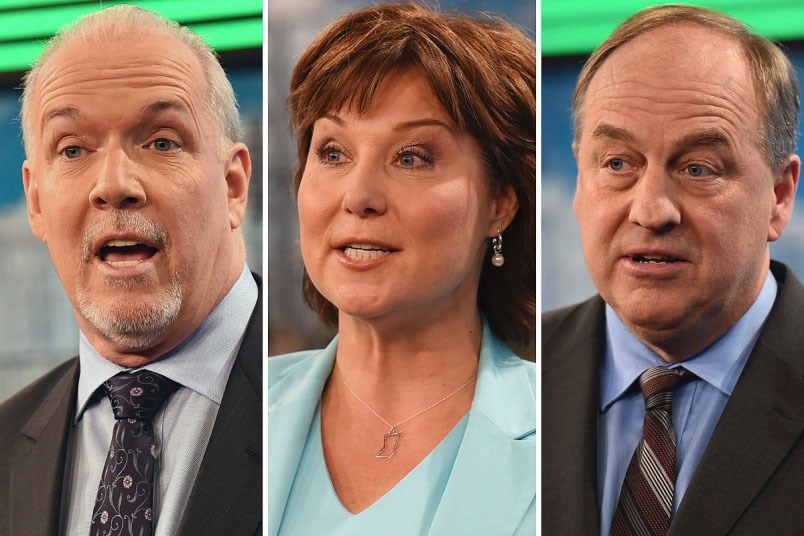Late evening results of the May 9 B.C. election showed the Liberals with 43 seats, the NDP with 41 seats and the Green Party with three seats – and the balance of power.
Business group advocates sounded uneasy with the result.
“Uncertainty is a bit issue,” B.C. Restaurant and Foodservices Association CEO Ian Tostenson told Business in Vancouver late in the evening on May 9.
“If the Greens hold the balance of power, I don’t know where they sit on the minimum wage. That’s a major issue.”
Indeed, it is unclear which party the Greens might support or what quid pro quo they might expect in return for that support. If the Greens were to form a coalition government with the Liberals, for example, some of the first things that the party may want to extract from the Liberals in return could be a hike in the carbon tax or a new system of road pricing - policies that play to the party’s political base.
“I think the Kinder Morgan pipeline might go sideways,” Simon Fraser University marketing and strategy professor Lindsay Meredith told BIV after 11 p.m. on May 9.
“The Site C Dam might get looked at again as well. If you want to be a governing party in a minority, and the government’s survival depends on the Green Party, guess what? They’re going to be sitting at the table on all key issues.”
Political historian David Mitchell told BIV late on May 9 that if it is the NDP that forms the government, one lesson that its leader would be wise to keep in mind is to be moderate.
Mitchell was elected as a Liberal MLA in 1991 but then left the party to sit as an independent. He is best known, however, for writing a biography of W.A.C. Bennett: W.A.C. Bennett and the Rise of British Columbia.
W.A.C. Bennett was the last B.C. premier to govern during a minority government.
“W.A.C. quickly realized that in order to get anything done, he needed a majority,” said Mitchell of Bennett’s minority government in 1952. “He engineered his defeat on a very popular issue. Health insurance, at the time, was a big issue.”
After Bennett "engineered" that defeat on a motion, he continued to win elections for the next two decades.
B.C. Liberal leader and Premier Christy Clark, during the campaign, mentioned W.A.C. Bennett as a mentor but Mitchell said the two politicians are very different.
Bennett, at 52, was an older and more seasoned politican than Clark was when she became premier at the age of 45, in 2011, Mitchell said.
Her roots in Metro Vancouver as a Burnaby native are also very different from that of Bennett, who was from a small Okanagan town.
Clark ran and lost in Vancouver Point Grey in the 2013 election and only ran in the Okanagan in a byelection.
“You have to be credible and authentic to where you're from,” Mitchell said.
“People in Vancouver used to call the Okanagan and Kelowna the hinterland. W.A.C. and his son Bill always corrected people and said it was the heartland. When you’re from the heartland, you know where your roots are because you haven't been parachuted in from the city.”



